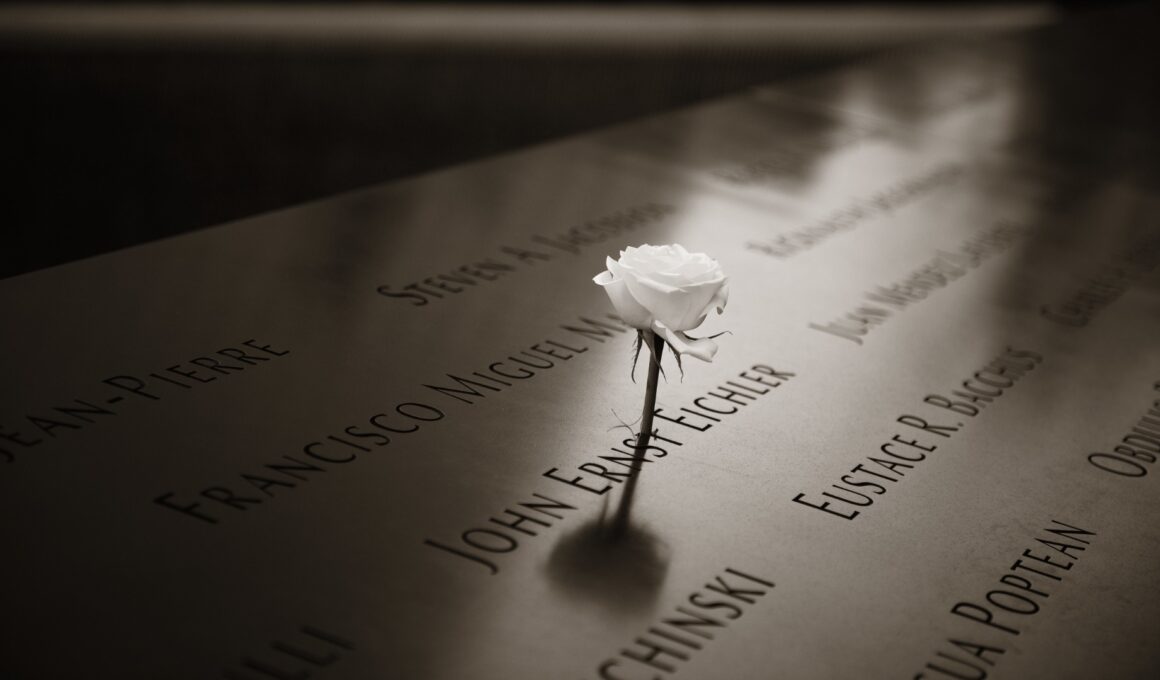Few events are as traumatic as the death of a loved one, and yet most have no idea how to respond when it occurs. The subject of death remains largely taboo in modern, secular societies. Whereas people were once guided through the grieving process and comforted by faith, ritual, and tradition, most are now left to “get over it” for a week or two, then expected back at the office.
Remember that you are not alone
When consumed by the raw agony of loss, this may be little comfort. But it is vital to remember that you are not alone. When a loved one dies, it is natural to look about you with bitter resentment. You may wish it had happened to someone you loathe instead. If you have lost your father, for example, you may find yourself staring with jealous anger at a neighbor or friend whose father is still alive. Avoid bitterness. Bitterness will soon turn into self-pity, and once caught by self-pity you can remain trapped in pain for the rest of your life. Remind yourself that it is only a question of time: nothing lasts forever, not your neighbor’s father, not your neighbor, not your grief, not even you. All things are mortal and must die; change alone is constant.
Reach out to other people
When bereaved, your instinct may be to shut yourself off. But you must reach out to other people. Try to be honest. If you are in unbearable pain, say so. You may be surprised by the response, even from colleagues or family members with whom you had previously had a difficult relationship. Try showing kindness and love to others as well. Volunteering for a charity or hospice may console and comfort you more than you expect. The more deep, honest, intimate connections you can make with other humans, the sooner you will heal.
Don’t let them go
Of course, deluding yourself is no good. Your loved one has gone and nothing can bring them back. This is a hard, bitter truth that must be faced. However, you don’t have to let go entirely. If you have lost a close relative (a parent or brother for example), you are still bonded to them. You may see resemblances to your mother in one of your daughters, in the way she walks, smiles, or fiddles with her hair. Or perhaps, when you drive, you notice that your hands on the wheel look similar to your father’s when he drove. If it was not a relative, the impact that person had on you still leaves a trace that cannot be eradicated. Don’t let them down; imitate the qualities you most admired in them and follow the things they taught you, and in a sense they are still there. Perhaps you could try talking to them when you are alone. Imagine what they would say in response. Though it sounds a little strange, so long as it is not a form of denial it is perfectly healthy.
Watch your physical health
Bereavement can be accompanied by so-called “survivor guilt.” People who feel this way often neglect their physical health; they eat poorly, or not all, and they cease exercising and sleeping.
Don’t be hard on yourself
Take as long as you need. There is no “correct” way to grieve, and there is no time limit. Understand that grief is often accompanied by guilt. You may find yourself replaying every mean and selfish thing you ever said or did to the deceased. As a sort of penance, many seek to prolong their suffering. They feel they somehow “owe” a certain amount of pain. Do not feel guilty or ashamed if your grieving lasts only a short time. Would the person you loved want you to be unhappy? But if you find, 20 or 30 years down the line, you still cry on the anniversary of their death, that is fine too. If anyone has the arrogance to suggest you “should be over it by now,” make sure you tell them to mind their own business.
Bereavement is a complex subject. Individuals respond to death in different ways: some take a brisk, unsentimental view, others never make their peace with it. Also, relationships vary; coping with the death of a child is quite different to coping with the death of a parent. Above all, be kind to yourself, but do not wallow in self-pity or shut yourself off from other people. Remember, there is no correct way to respond to death. You must find your own path through, and you must do so honestly and bravely.




